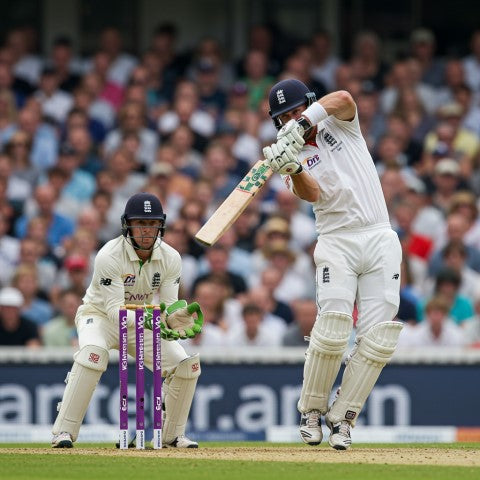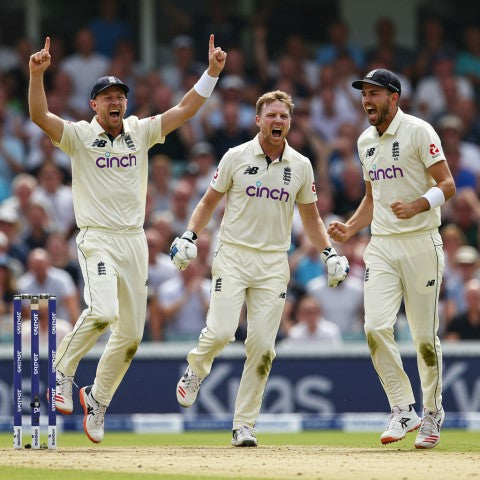How Do IPL Teams Scout Talent? Behind the Scenes of Player Recruitment

The Indian Premier League (IPL) is a global phenomenon, celebrated not only for its thrilling matches but also for its role in discovering and nurturing cricketing talent. Behind every stellar performance lies the meticulous effort of IPL teams and their talent scouting processes.
These behind-the-scenes operations are vital for building competitive squads and ensuring the league’s significance as a platform for both cricketing legends and emerging stars.
This article explores how IPL teams scout talent, the strategies they employ, and the impact of player recruitment on the league.
The Role of Talent Scouting in IPL
Talent scouting is the cornerstone of player recruitment for IPL franchises. It involves identifying players who can excel in the league’s dynamic tournament format, characterized by intense competition and high-pressure situations.
Scouting is essential for:
- Uncovering emerging stars who can become future icons of the game.
- Building balanced squads that cater to specific match conditions and stadium facilities.
- Maintaining fan interest and loyalty by fielding competitive and entertaining teams.
Pre-Auction Preparations: Laying the Groundwork
Before the IPL auction, teams conduct extensive preparations to identify potential recruits. These preparations involve:
- Data Analysis: Teams use cricket analytics to study player statistics, assessing their performance in domestic leagues, international matches, and previous IPL seasons.
- Video Analysis: Footage from match highlights is reviewed to evaluate a player’s technique, temperament, and ability to handle pressure.
- Scouting Reports: Scouts attend matches at iconic venues, analyzing players’ performances in live conditions.
This data-driven approach ensures that teams are well-prepared to make informed decisions during the auction.
Scouting for Domestic Talent
The IPL has played a pivotal role in promoting cricket culture in India, providing a platform for domestic players to shine. Scouting for domestic talent involves:
- Watching Domestic Tournaments: Competitions like the Syed Mushtaq Ali Trophy and Ranji Trophy are breeding grounds for potential IPL stars. Scouts closely monitor these tournaments to identify standout performers.
- Trial Matches: Many franchises organize trials at their practice facilities, giving local players an opportunity to showcase their skills.
- Building Local Connections: Scouts often collaborate with regional coaches and academies to identify promising players.
Domestic talent adds depth to squads and ensures a strong bench strength, critical during the demanding IPL schedule.
International Talent: Expanding the Search
While domestic players form the backbone of IPL teams, international stars bring global appeal and expertise. Scouting international talent involves:
- Following T20 Leagues: Scouts track performances in leagues like the Big Bash League (BBL), Caribbean Premier League (CPL), and The Hundred to identify players suited to IPL conditions.
- Assessing Adaptability: Players’ ability to adjust to Indian pitches, weather, and stadium facilities is a key factor in their selection.
- Analyzing Match Pressure: International stars are often evaluated on their ability to perform in high-stakes matches, such as the IPL playoffs.
This global talent pool ensures that the IPL remains a melting pot of cricketing excellence.
Leveraging Technology in Scouting
Advancements in technology have revolutionized talent scouting in the IPL. Teams now rely on tools like:
- Cricket Analytics Platforms: These platforms provide in-depth data on player performance, helping franchises make strategic decisions.
- Video Analysis Software: High-definition footage allows scouts to analyze players’ techniques and identify areas of improvement.
- Performance Tracking Systems: Wearable technology and GPS trackers are used during trials to monitor players’ fitness and movement.
By integrating technology, franchises can uncover hidden gems and build squads that align with their cricketing strategies.
The Role of Coaching Staff in Talent Development
The coaching staff plays a crucial role in scouting and nurturing talent. Their responsibilities include:
- Identifying Skill Gaps: Coaches assess players’ strengths and weaknesses, helping them refine their skills.
- Mentoring Emerging Stars: Young players often benefit from the guidance of experienced coaches and former cricketers.
- Building Team Cohesion: Coaches ensure that new recruits integrate seamlessly into the team, fostering a strong fan experience and enhancing on-field performance.
Coaches also collaborate with analysts and scouts to create a comprehensive talent pipeline.
Strategic Player Recruitment: Beyond Talent
Scouting is not just about identifying skilled players; it’s also about understanding team dynamics and the league’s requirements. Teams consider:
- Role Fit: Players are evaluated based on their ability to fill specific roles, such as death bowlers, finishers, or power hitters.
- Team Balance: Franchises aim to strike a balance between experienced players and young talent, ensuring consistency and adaptability.
- Fan Appeal: Popular players often drive fan engagement, merchandise sales, and ticket booking tips, making them valuable assets.
This holistic approach ensures that teams are equipped to compete in the league while maintaining their brand identity.
Success Stories: Scouting Triumphs in IPL History
The IPL has witnessed several success stories that highlight the importance of talent scouting:
- Jasprit Bumrah: Discovered by Mumbai Indians through domestic scouting, Bumrah has become one of the league’s most successful bowlers, excelling in death overs.
- Hardik Pandya: Another Mumbai Indians recruit, Pandya’s rise from a local player to a marquee all-rounder showcases the impact of effective scouting.
- Rashid Khan: Identified by Sunrisers Hyderabad, Rashid’s leg-spin has made him one of the league’s standout performers, dominating in key matches.
These players have not only contributed to their teams’ success but also elevated the league’s stature in global cricket.
Challenges in Talent Scouting
Despite its advancements, talent scouting in the IPL faces challenges:
- High Competition: With multiple franchises vying for the same talent, securing top players can be difficult.
- Uncertainty of Form: Players’ performances in domestic leagues or trials may not always translate to IPL success.
- Budget Constraints: Teams must balance their spending, especially during the player auctions, to ensure they can build a well-rounded squad.
Overcoming these challenges requires a combination of strategic planning and adaptability.
The Economic Impact of Talent Scouting
Effective scouting has a ripple effect on the league’s economy:
- Boosting Franchise Value: Successful player recruitment enhances team performance, increasing a franchise’s market value.
- Driving Merchandise Sales: Star players often boost sales of cricket jerseys and other team merchandise.
- Attracting Sponsorships: Strong squads attract high-profile sponsorship deals, contributing to the league’s overall revenue.
Talent scouting, therefore, plays a key role in the economic impact of IPL.
Conclusion: The Future of Talent Scouting in IPL and Its Significance
Talent scouting is the lifeblood of the Indian Premier League (IPL), shaping the league’s identity and ensuring its sustained success. From discovering emerging stars to nurturing cricketing legends, the scouting process combines strategy, technology, and expertise to create teams that captivate fans worldwide.
As the league evolves, the role of talent scouting will only grow, driven by advancements in cricket analytics, expanded global talent pools, and innovative strategies. For franchises, mastering the art of player recruitment is not just about winning matches; it’s about contributing to the league’s legacy and enriching the cricket community. Whether it’s uncovering hidden gems or building teams that resonate with





Sar main kafi match khel raha hun politician ki vajah se koi acchi level per khelne Ko nahin milta hai Mera state kafi daba hua hai
Sar main kafi match khel hu politician ki vajah se koi acche level per nahin khelne Ko milta hai main
IPL match
IPL match
Me IPL match
Leave a comment